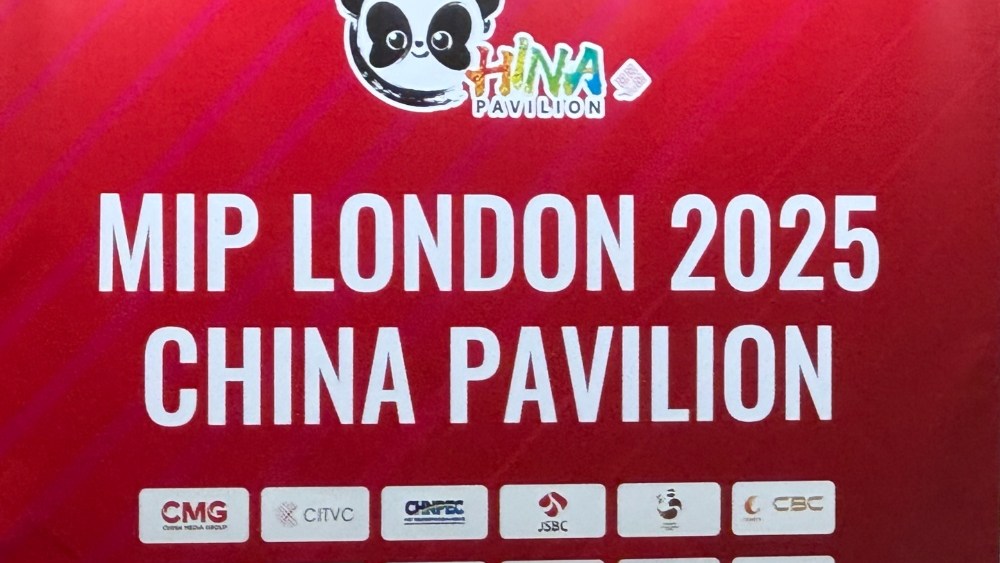Chinese TV Formats Eye Global Expansion, Leaders Reveal at Mip London
International TV format experts gathered at Mip London to discuss the growing exchange of content between China and global markets, highlighting both opportunities and challenges in cross-cultural adaptation.
Qin Xiaoming of Jiangsu Broadcasting Corporation (JSBC) shared how the Chinese broadcaster has evolved from acquiring international formats to developing original content for export. “JSBC has been very persistent in the format business for over a decade,” said Qin. “We both buy and sell. We brought quite a lot of international formats to China, like ‘Got Talent’ from Fremantle and ‘Still Standing,’ which was very successful in China.”
Qin added that while a few formats had been optioned to the U.S., U.K. and Europe, they are still waiting for a “milestone format, one format that might work globally.”
Avi Armoza of Armoza Formats emphasized the importance of co-development when working with Chinese partners. “The most effective way of bringing shows to China is to find partners that, even if you have an existing format, you need to work in co-developing, adapting it to the Chinese market,” Armoza explained. He also highlighted the production scale difference: “One thing we don’t understand from the outside until we come to China is how big the scale of production and production value is.”
A key insight from Tim Crescenti of Small World IFT concerned the scalability challenges of Chinese formats. “The scalability has to be put in the presentation materials,” he advised, recounting an experience with a Chinese magic show that featured 475 magicians. “The buyers don’t get a second chance. As soon as they see 475 magicians, they’re gone. You can say this works in China with many performers, but in Denmark, you can do it with 14 – but they don’t hear it.”
Roy Lu from Linmon International, which focuses on scripted content, identified romantic comedies as particularly exportable. “We feel strong demand for high-end content dramas and rom-coms,” said Lu. “We have one show that performed pretty well in Indonesia and Thailand for half a year, at the top of the list.” Lu added, “Rom-com works pretty well everywhere. It fits the majority of viewers – the base of the pyramid.”
For scripted content adaptation, Lu mentioned the success of their show “Nothing But Thirty,” which has been developed into six different language local versions across Asia, with several shows already in post-production.
Zhang Jun of Yulele Film shared insights on improving Chinese content’s global appeal: “Create content that resonates on a global scale by striking a balance between cultural authenticity and internationalization. It is essential to identify universal values, tap into shared emotions of humanity, and incorporate cross-cultural perspectives.”
Zhang is currently developing a TV series about Chinese history during the Song Dynasty, focusing on what he described as “probably the most successful cultural export of Chinese history,” and is seeking global production partners.
The panel highlighted sponsorship as crucial for format adaptation in China. “To bring a show to screen in China, you have to see the sponsorship first,” Qin explained. “When a sponsorship is in place, we’d love to pay the license fee or flight team consulting fee, and we can follow the international team.”
In another Mip London panel highlighting the growth of co-productions across documentary and animation sectors, Richard Bradley of Lion TV detailed his company’s 15-year history of pioneering co-production relationships in China. “We’ve made more than 20 productions in China with Chinese partners,” Bradley said. He highlighted ambitious projects including a live Lunar New Year broadcast for the BBC that drew “about 2-3 million viewers in the U.K. and about 100 million viewers in China.”
He emphasized the importance of trusted partnerships: “If you find trusted partners and clarity of what you’re trying to achieve, you can really achieve big things in our work.”
Wei Li from Golden Dreams Media & Communications U.K., the UK arm of JSBC, discussed their documentary co-productions. “We have worked on at least five documentaries together covering different topics such as modern China, archaeology, science, technology and many other areas,” said Li. She revealed an upcoming project about “the two greatest minds in the history of East and West, Socrates and Confucius,” expected to release on major international channels by year-end.
Carolyn Payne from National Geographic outlined the broadcaster’s long-standing co-production relationship with CICC. “Most recently, we did two series of a project called ‘Ancient China from Above,’ where we looked at archaeology projects, the Great Wall, the first Empress tomb, and some other places,” Payne explained. She highlighted the financial benefit of these partnerships: “It’s a great financial relationship because they put in half the budget… in the world of decreasing budgets and a greater need for co-production.”
On the animation front, Allen Lo of Fantawild International shared the company’s global reach with its hit franchise “Boonie Bears.” Katherine Senior of Gutsy Pictures discussed their positive experience with Chinese partners on the Emmy-nominated series “Moominvalley.”
All panelists stressed that successful international content requires universal themes and cultural understanding. “The most important thing is that you try to understand each other’s culture and try to really appreciate each other’s culture,” said Wei, while Senior emphasized that for animation, “humor is very important in kids programming, but it also has to have universal themes of kindness, friendship, and adventure.”


